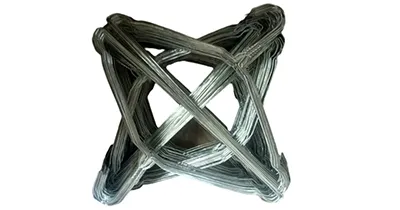-
 Phone:
Phone: -
 Email:
Email:

Exploring the Best Wire Gauge Options for Clothes Hangers and Their Durability Factors
Understanding Clothes Hanger Wire Gauge The Key to Durability and Functionality
When it comes to organizing and maintaining a tidy wardrobe, clothes hangers play an indispensable role. However, not all clothes hangers are created equal. One of the critical factors that determine the quality and functionality of a clothes hanger is its wire gauge. Understanding wire gauge is essential for anyone looking to choose the right hanger for their clothing needs.
What is Wire Gauge?
Wire gauge refers to the thickness of the wire used in manufacturing clothes hangers. It is measured in American Wire Gauge (AWG), which assigns a number to the diameter of the wire. The lower the number, the thicker the wire, while a higher number indicates a thinner wire. For instance, a hanger made from 14-gauge wire is thicker than one made from 18-gauge wire. The gauge of the wire directly affects the hanger's strength, durability, and ability to hold weight.
Importance of Choosing the Right Wire Gauge
1. Weight Capacity The wire gauge of a clothes hanger is crucial in determining how much weight it can support. Thicker wire hangers (lower gauge numbers) are typically better suited for heavier garments such as winter coats and suits. In contrast, thinner wire hangers (higher gauge numbers) may bend or break under the same load, making them unsuitable for heavy fabrics.
2. Durability Hangers that are made from thicker wire are often more durable and withstand daily use better than those made from thinner wire. If you regularly hang heavy items or store garments that you frequently wear, investing in thick, sturdy hangers can be a wise decision.
clothes hanger wire gauge

3. Suitability for Different Fabrics The type of wire gauge you choose can also be influenced by the kind of clothing you typically wear. For instance, delicate fabrics such as silk or chiffon may benefit from padded or thin hangers that minimize stretch and maintain the garment's shape. Conversely, heavier winter wear may necessitate thicker, sturdier hangers.
4. Space Efficiency Thinner wire hangers take up less space in your closet, allowing for more efficient organization. If you have a compact wardrobe, choosing hangers with a higher gauge can aid in maximizing vertical space without compromising the clothes' shape.
Common Wire Gauges for Clothes Hangers
Most standard clothes hangers are made from wire that falls within a gauge range of 14 to 18.
- 14-gauge hangers are ideal for heavy coats and jackets due to their strength and durability. - 16-gauge hangers strike a balance between sturdiness and versatility, making them suitable for a variety of clothing types, including lighter jackets and dresses. - 18-gauge hangers are often used for light garments like t-shirts and blouses but may struggle under the weight of heavier items.
Conclusion
In conclusion, when selecting clothes hangers, paying attention to the wire gauge is essential for ensuring your garments are well cared for. Investing in high-quality hangers with the appropriate wire gauge not only enhances the longevity of your clothing but also contributes to a more organized and efficient wardrobe. So, whether you are revamping your closet or simply looking to replace your old hangers, remember that the wire gauge can make all the difference in achieving a perfectly organized wardrobe!
-
Reinforce Your Projects with Versatile Hexagonal Wire MeshNewsSep.12,2024
-
PVC WireNewsSep.12,2024
-
Maximize Your Closet Space with Clothes Hanger WireNewsSep.12,2024
-
Enhance Safety and Stability with Premium Rock Netting SolutionsNewsSep.12,2024
-
Bucket Handle WireNewsSep.12,2024
-
Baling Wire: Your Ultimate Solution for Securing and BundlingNewsSep.12,2024
-
What’s the Cost of Securing Your Property? Breaking Down Barbed Wire Fence PricesNewsAug.30,2024








